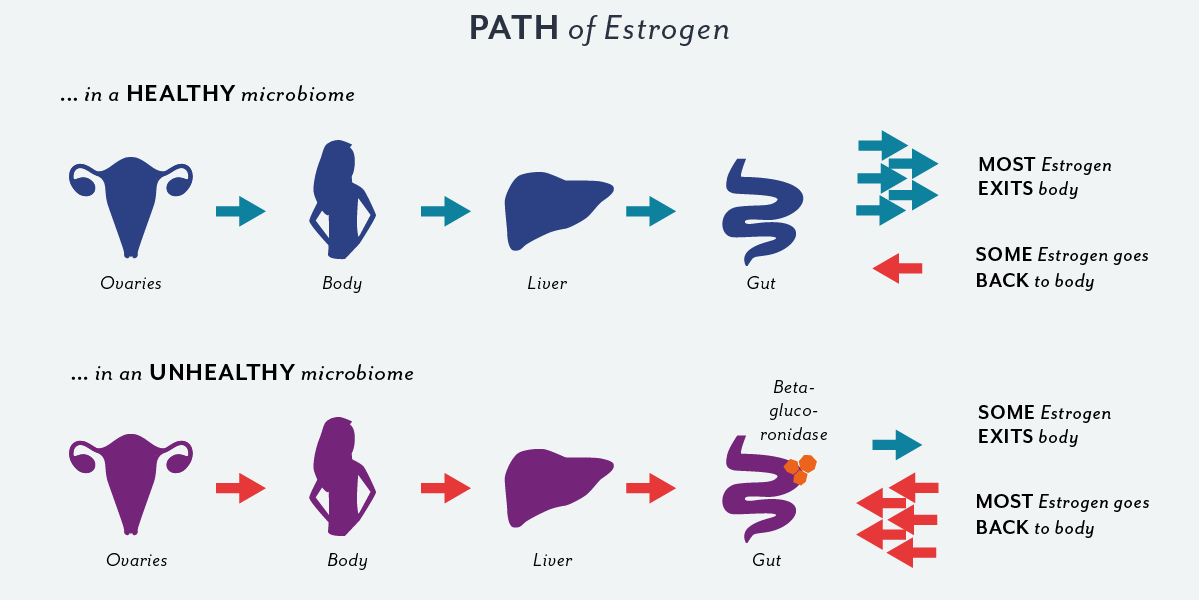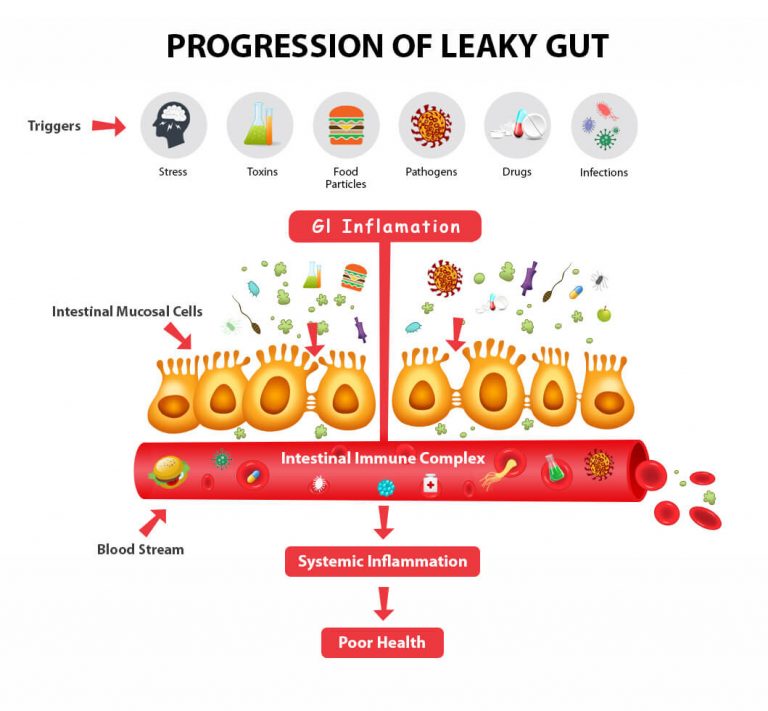Ever wondered what is gut and how to improve gut health? Let’s unravel the mysteries behind stomach issues and gdiet for leaky gut. In the journey towards optimal well-being, the significance of food for healthy gut cannot be way too much. Let’s embark together and learn how to improve gut health and bloating.
Maintaining its delicate equilibrium in the bustling pace of modern life can prove challenging. Many things can affect the health of your gut. Diet, food intolerance, lifestyle, hormones, sleep, stress, and medicines will affect how your body digests and gets rid of waste. Exploring the wonders of fermented foods, a cornerstone for enhancing gut health.
As we age, the natural cycles of our body slow down and don’t work as well
Gerard Mullin, MD, a gastroenterologist at Johns Hopkins

More and more people feel bloated and have poor gut health symptoms. Symptoms like bloating, IBS, inflammation, heartburn, and constipation. They affect many people’s quality of life. Unravel the mysteries of how to get rid of bloating.
I’ve put together my best tips on how to improve gut health. In this article you would get in-depth information on worst foods for gut health, diet for leaky gut, bloating and gas relief. Heal your gut fast. The information is with my research, training and my experiences in the wellness industry.
Also Read:
- Defeating Rabies Menace: Global Efforts Triumph in Saving Lives!
- Want to Know 7 Healthy Eating Habits: Powerful Balanced Diet Tips
- Benefits of Tea: Creating Tranquility in a Busy World
What is Gut: Exploring the Significance
Your gut is like a busy command centre inside you. It refers to your gastrointestinal (GI) system. The system runs from your mouth to the centre of your stomach. This fantastic system breaks down food, absorbs nutrients, and works with your defence system. There’s a whole world inside!

The Gut is often referred to as the “second brain,”. It wields incredible influence over our digestion, immunity, and vitality. Think of your gut as your body’s harmony conductor, orchestrating digestion, immunity, and a good vibe.
Are you looking for bloating and gas relief? Our explorative article on how to improve gut health get you back. Let’s dive in and start your gut-friendly foods transformation now! We will help you how to get rid of bloating.
The Importance of Gut Health
Let’s first understand the Vital Role of Gut Health. Picture your gut as a superhero hub. Taking care of it is like giving your body its guardian! Awareness about food for healthy gut impacts our well-being
The gut microbiome or microbiota is the name for the trillions of good bacteria that live in a healthy gut.These bacteria help in several essential functions, including:
- Digestion and Nutrient Absorption: The gut microbiota aids in breaking down food. And extracting nutrients that our body needs for optimal functioning.
- Immune System Support: The gut microbiota plays a crucial role in supporting the immune system. And helps to fight off harmful pathogens and preventing infections.
- Mood Regulation: Surprisingly, the gut and brain connect through a complex network known as the gut-brain axis. The gut microbiota produces neurotransmitters like serotonin. These are crucial in regulating mood and mental well-being.
- Inflammation and Disease Prevention: A healthy gut microbiota maintains a balanced immune response. Prevents chronic inflammation that can contribute to the development of various diseases.
Poor Gut Health Symptoms
When the balance of bacteria in the gut disrupts, it can lead to poor gut health symptoms. Listen to your body’s whispers! People often have stomach issues and lookfor bloating and gas relief. Signs like unpredictable tummy woes, or skin troubles, your gut might send an SOS. Even mood swings and fatigue could be cues. It’s your gut’s unique way of asking for extra care and attention. The intestinal microflora is a positive health asset. This article will help you uncover- how to improve gut health and bloating
10 Signs of an Unhealthy Gut
Poor gut health symptoms should not be overlooked for well-being. Changes in stomach acid, gut defence, and the complex community of bacteria in your digestive system. These are the main culprits that often lead to food intolerance. Being aware of the worst foods for gut health is crucial for overall well-being
Stomach Issues
One of the most apparent Poor Gut Health Symptoms is stomach issues. These can include symptoms such as:
- Bloating: Excessive gas production in the gut can result in bloating. Thus making the abdomen feel swollen and uncomfortable.
- Abdominal Pain: Chronic abdominal pain or discomfort can state gut dysbiosis. Thus indicating an imbalance in the gut microbiota.
- Diarrhea or Constipation: Frequent bouts of diarrhoea or constipation indicate that unhealthy gut. Diarrhoea may state an overgrowth of harmful bacteria. But constipation suggest a lack of beneficial bacteria in the gut.
- Heartburn: Acid reflux and heartburn can occur when the lower oesophagal sphincter. Which usually prevents stomach acid from flowing back into the oesophagus. This becomes weakened due to gut issues.
Food Intolerance
Contrary to food allergies, food intolerance often indicate gastrointestinal problems.Symptoms of food intolerance include:
- Gas and Flatulence: Difficulty in digesting certain foods. This can result in excessive gas production and flatulence.
- Bloating and Abdominal Discomfort: Consuming foods that the gut struggles to break down. Leading to bloating and abdominal discomfort.
- Diarrhea or Loose Stools: Some individuals may experience diarrhoea or loose stools. This happens after they consume certain foods they are intolerant to.
Is Bloating Due to Gut Health?
Yes, bloating co-relates to gut health. Imbalance in gut bacteria, food intolerance, or inflammation may trigger it. Nurturing with gut-friendly foods like wholesome foods and mindful eating can bring bloating and gas relief
Unintentional Weight Changes
An unhealthy gut can also impact body weight and lead to unintentional weight changes. This can manifest as:
- Weight Gain: Imbalances in the gut microbiota may affect metabolism. This affects the body’s ability to absorb nutrients, leading to weight gain.
- Weight Loss: An unhealthy gut can impair nutrient absorption, resulting in unintended weight loss.
Skin Issues
Believe it or not, your gut’s health can also influence your skin’s condition. An unhealthy gut may contribute to various skin issues, including:
- Acne: Imbalances in the gut microbiota can cause inflammation throughout the body. This may contribute to the development of acne.
- Eczema and Psoriasis: Gut dysbiosis has links to inflammatory skin conditions such as eczema and psoriasis.
Mood Disorders and Mental Health Issues
The gut-brain connection is well-established; an unhealthy gut can impact mental health and mood. Some common poor gut health symptoms for mental health include:
- Depression and Anxiety: Imbalances in the gut microbiota causes increased risk of depression. And lead to anxiety disorders.
- Irritability and Mood Swings: Fluctuations in gut health can lead to irritability and mood swings. This affects emotional well-being.
Fatigue and Sleep Disturbances
Poor gut health can contribute to fatigue and sleep disturbances. Common symptoms include:
- Chronic Fatigue: Imbalances in the gut microbiota may contribute to chronic fatigue syndrome. And general feelings of exhaustion.
- Insomnia and Poor Sleep Quality: Disruptions in the gut-brain axis can impact sleep patterns. That lead to insomnia or poor sleep quality.
Weakened Immune System
The microbiome in the gut is essential for a good immune system. Signs of a weakened immune system due to gut dysbiosis may include:
- Frequent Infections: An unhealthy gut can compromise the immune system. Thus making individuals more susceptible to infections.
- Slow Wound Healing: Poor gut health may impair the body’s ability to heal wounds.
Sugar Cravings and Poor Blood Sugar Control
The bacteria in the gut can influence food cravings, particularly for sugary foods. Signs of poor blood sugar control due to an unhealthy gut include:
- Intense Sugar Cravings: Imbalances in the gut microbiota may increase cravings for sugary foods.
- Blood Sugar Fluctuations: A compromised gut microbiota can affect blood sugar regulation. Leading to erratic blood sugar levels.
Autoimmune Conditions
Certain autoimmune conditions have links to gut dysbiosis. Signs of autoimmune diseases related to an unhealthy gut include:
- Rheumatoid Arthritis: Imbalances in the gut microbiota is the cause.
- Thyroid Issues: An unhealthy gut can impact thyroid function. Thus leading to hypothyroidism or Hashimoto’s thyroiditis.
Hormonal Imbalances
The gut microbiota can also influence hormonal balance within the body. Signs of hormonal imbalances related to an unhealthy gut include:
- Irregular Menstrual Cycles: Poor gut health may disrupt hormonal balance. And result in irregular menstrual cycles.
- Mood Swings and PMS: Imbalances in the gut microbiota can contribute to mood swings. And exacerbate premenstrual syndrome (PMS) symptoms.

Home Remedies: Bloating and Gas Relief
Combat gas naturally with kitchen superheroes. Peppermint tea to relax your digestive muscles. Nibble on caraway seeds for digestion and try activated charcoal capsules to absorb the gas. A gentle yoga stretch like the “wind-relieving pose” can give you bloating remedies.

How to Improve Gut Health
Your gut’s a garden that thrives with the proper care. Natural remedies for bloating involves making lifestyle and dietary changes. Adding diet for leaky gut to support the balance of your gut microbiome.
Fortunately, there are several steps you can take to improve gut health and restore balance to your microbiota.
Understanding Leaky Gut Syndrome
Leaky gut syndrome refers to increased intestinal permeability, allowing toxins to enter the bloodstream. Focus on diet for leaky gut, probiotics, and stress reduction to support gut barrier function.
A diet for leaky gut focuses on healing foods, including bone broth, vegetables, and probiotic-rich foods, while avoiding gluten, dairy, and processed sugars that exacerbate gut permeability
Science-Based Research: 10 Ways to Improve Gut Bacteria
There are no magic fixes for gut health. Also, there is no scientific proof that gut-friendly foods or any other product will quickly fix bloating and gas relief. Discover effective ways Discover effective ways on how to improve gut health and bloating
Nurturing to Greatness: How to Improve Gut Health
1. Foods for Healthy Gut
For a healthy gut, you must eat good and nutrient-rich gut-friendly foods. Avoiding worst foods for gut health is crucial. Processed foods, high sugar, artificial additives, and excessive alcohol can harm the gut flora. Contributing to stomach issues and food intolerance.
Focus on incorporating the following gut-friendly foods into your diet:
- Fiber-Rich Foods: Aim to consume various fruits, vegetables, whole grains, legumes, and nuts. These are rich in dietary fibre that promotes healthy gut microbiota. Bacteria in the gut love to eat fibre. Especially fructans and cellulose. Fructans are natural sugars that are high in fibre. Onions, garlic, wheat, and other plant foods contain fructans. And the insoluble fibre cellulose can be found in broccoli, carrot peels, and asparagus.
- Probiotic-Rich Foods: Include fermented foods such as yoghurt, kefir, sauerkraut, kimchi, and kombucha. To introduce beneficial bacteria into your gut.
- Prebiotic Foods: Prebiotics are non-digestible fibres. These feed the beneficial bacteria in your gut. Examples include garlic, onions, leeks, asparagus, and bananas.
- Omega-3 Fatty Acids: Incorporate fatty fish, flaxseeds, chia seeds, and walnuts. To support gut health and reduce inflammation.
- Limit Processed Foods and Added Sugars: Minimize your intake of processed foods, sugary snacks, and beverages. They can disrupt gut microbiota balance.

2. Stay Hydrated
For how to improve gut health, it’s essential to stay hydrated. Aim to drink plenty of water throughout the day to support digestion and ensure natural remedies for bloating.
3. Manage Stress Levels
Chronic stress can negatively impact gut health. Engage in stress-reducing activities. Such as meditation, yoga, deep breathing exercises, or hobbies that promote relaxation.
4. Get Regular Exercise
Regular physical activity can benefit gut health by reducing stomach issues. And reducing inflammation. Try to exercise for at least 30 minutes most days of the week.
5. Prioritize Sleep
Adequate sleep is essential for gut health. Establish a regular sleep routine and aim for 7-8 hours each night to support optimal gut function.
6. Best Probiotic for gut health
If you cannot get enough best probiotic for gut health. Consider taking a high-quality probiotic supplement. Look for strains that promote gut health, such as Lactobacillus and Bifidobacterium species.
7. Minimize Antibiotic Use
Antibiotics have their uses but can interact with your gut bacteria if you take too much. Use your doctor’s prescription and stick to the advised dosage on how to improve gut health.
8. Stay Away From Toxins
Exposure to toxins and pollutants can negatively impact gut health. Minimize exposure to environmental toxins. Staying away from toxins is essential, especially when considering the worst foods for gut health. Choose organic foods and using natural cleaning and personal care products.
9. Seek Professional Guidance
If you’re experiencing persistent stomach issues or suspect an food intolerance. Consult a healthcare professional, such as a gastroenterologist, naturopathic doctor, or registered dietitian. They can provide you with specialized recommendations and treatments design gut-friendly foods for you.
10. Practice Mindful Eating
Embrace mindful eating by savouring each bite, chewing deliberately. And staying fully present during meals. This practice enhances digestion, curbs overeating tendencies. Also it fosters a harmonious connection between your gut and brain well-being.
Does gas mean poor gut health?
Are you experiencing a poor gut health symptoms or gassy stomach? It might signal an imbalanced gut. Incorporate gut-friendly foods, like ginger or peppermint tea, to soothe stomach issues. Remember, a well-nurtured gut can provide bloating and gas relief. And keep awkward rumblings at bay.
FAQ: How To Improve Gut Health and Bloating
How can I find bloating remedies and enhance my gut health?
For bloating and gas relief and improve gut health:
- Opt for a fibre-rich diet with whole grains, veggies, and fruits.
- Stay hydrated, manage stress through relaxation techniques. Include best probiotic for gut health like yoghurt and kefir.
- Slow down while eating, chew well, and consider herbal teas like peppermint for relief.
Conclusion
Listen to what is gut – it’s not just your stomach talking. Hope you enjoyed the read- how to improve gut health and bloating. But your body’s wisdom guiding you towards balance, vitality, and lasting well-being. The article explores key strategies on how to improve gut health. Dietary adjustments with diet for leaky gut can be effective steps. Help people when they need to know-how to get rid of bloating.
Are you experiencing food intolerance? Early recognition of poor gut health symptoms can provide relief from stomach issues. Bloating and gas relief are within reach. Follow a recommended diet for leaky gut and awareness of the worst foods for gut health. Discovering effective natural remedies for bloating can bring relief and promote digestive wellness.
A healthy and functioning gut is crucial to good health. Understanding “How To Improve Gut Health and Bloating” can support optimal digestion, immune function, and overall vitality. Make conscious choices to focus one how to improve gut health. This can be through gut-friendly foods, nutritious diet, regular exercise, stress management, and adequate sleep.
Remember, a healthy gut is a critical component of a healthy life.
Our Digital Imprints:
Anuj Mahajan is a Mass Communication Specialist, ICF Certified Coach & Corporate Trainer. Motivational Speaker / NLP Lifecoach.
Chief Operating Officer: Nuteq Entertainment Pvt Ltd, and
Co-Founder: Trendvisionz – A Premier Digital Marketing Agency in India
Get Connected to us with our Newsletters-
Transforming Lives… Creating the magic. Just – Believe ~ Practice ~ Perform
BizTech Chronicle… Navigating Tomorrow’s Tech Frontiers 🚀
Follow me on Twitter or LinkedIn. Check out my website.


